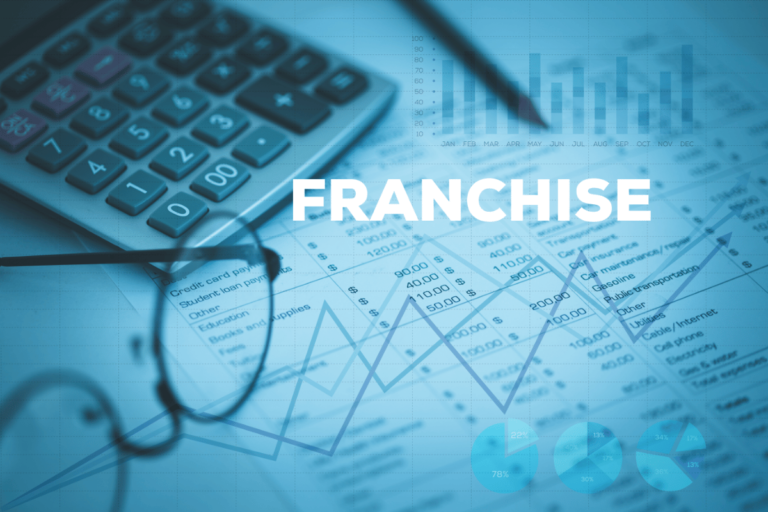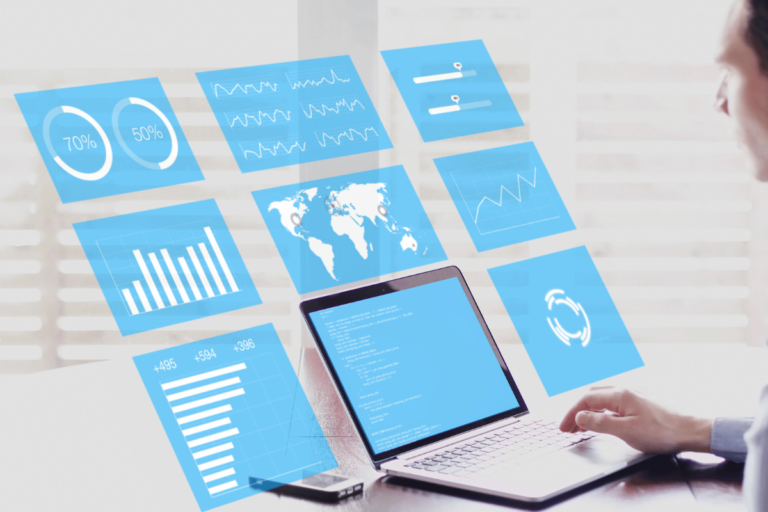Entrepreneur vs. Employee Mindset: Key Differences and How They Shape Success
When it comes to navigating the world of work, the way you approach your career often stems from your underlying mindset. There are two primary mindsets: the entrepreneur mindset and the employee mindset. These mindsets influence how individuals perceive risk, opportunity, responsibility, and success. Understanding the distinctions between these mindsets can help you determine the path that best aligns with your personal and professional goals. This article explores the key differences between the entrepreneur and employee mindsets and how each can lead to success in its own way.
Risk Tolerance: Embracing the Unknown vs. Preferring Security
Entrepreneur Mindset: Thriving in Uncertainty
Entrepreneurs are known for their willingness to embrace risk and uncertainty. They see potential where others see challenges and are driven by the possibility of significant rewards. This mindset involves making decisions in the face of ambiguity, taking calculated risks, and being comfortable with the possibility of failure. Entrepreneurs often view setbacks as learning opportunities that bring them closer to success.
Entrepreneurs are naturally inclined to innovate and experiment, understanding that risk is a necessary component of progress. Their ability to remain resilient in the face of uncertainty is a defining characteristic that sets them apart.
Employee Mindset: Seeking Stability and Predictability
In contrast, those with an employee mindset tend to prioritize stability and predictability in their careers. They often prefer the security of a steady job, a regular paycheck, and clear expectations. This mindset values minimizing risk and avoiding uncertainty, leading employees to make more conservative decisions that align with established paths and routines.
Employees generally thrive in environments where the rules are clear, the structure is defined, and the outcomes are predictable. This approach allows them to plan for the future with confidence, knowing that their efforts will be rewarded within the framework of their organization.
Motivation: Vision-Driven Goals vs. Task-Oriented Achievement
Entrepreneur Mindset: Fueled by a Larger Vision
Entrepreneurs are typically driven by a larger vision or purpose. They are motivated by the desire to create something new, solve significant problems, or make a meaningful impact. This vision often extends beyond immediate tasks, guiding long-term strategies and decisions. Entrepreneurs are passionate about their goals and are willing to go to great lengths to achieve them.
This mindset encourages entrepreneurs to think big, take bold steps, and remain focused on their ultimate objectives, even when the path forward is challenging or uncertain. Their motivation is deeply tied to the belief that their work can change the world in some way.
Employee Mindset: Achieving Success Through Task Completion
Employees, on the other hand, are often motivated by the successful completion of tasks and the attainment of short-term goals. Their focus is typically on fulfilling their job responsibilities, meeting deadlines, and contributing to the overall success of the organization. This task-oriented approach provides a sense of accomplishment and satisfaction, particularly when recognized by supervisors or peers.
The employee mindset values the clarity of defined roles and the ability to measure success through tangible achievements. Employees are often driven by the desire to excel in their specific area of expertise, climb the career ladder, and gain recognition for their contributions.
Decision-Making: Autonomy and Control vs. Collaborative Input
Entrepreneur Mindset: Decisive and Independent
Entrepreneurs are accustomed to making decisions independently and often need to act quickly to seize opportunities or address challenges. They take full ownership of their decisions, knowing that their success depends on their ability to steer their venture in the right direction. This decisiveness is fueled by confidence in their vision and a willingness to take responsibility for the outcomes.
Entrepreneurs often rely on their instincts, experience, and analysis to make choices that align with their long-term goals. Their decision-making process is typically less encumbered by bureaucracy, allowing for greater agility and responsiveness in a fast-changing environment.
Employee Mindset: Collaborative and Structured
Employees, however, are more likely to make decisions within the framework of their organization, often involving input from supervisors, colleagues, or team members. This collaborative approach ensures that decisions are aligned with the company’s overall strategy and that there is consensus among those involved.
The employee mindset values structure and process in decision-making, with an emphasis on following established guidelines and seeking approval when necessary. This approach can lead to more measured and deliberate decisions, which are essential in maintaining stability and consistency within an organization.
Approach to Problem-Solving: Innovative Solutions vs. Established Processes
Entrepreneur Mindset: Creative Problem Solvers
Entrepreneurs are inherently creative problem solvers. When faced with challenges, they often seek out innovative solutions that disrupt traditional ways of thinking. This mindset is driven by the need to find new approaches that can give their business a competitive edge or open up new markets. Entrepreneurs are willing to experiment, take risks, and think outside the box to overcome obstacles.
This innovative approach to problem-solving allows entrepreneurs to navigate complex situations and adapt quickly to changes in the market or industry. Their ability to see problems as opportunities for growth and improvement is a key factor in their success.
Employee Mindset: Efficiency Through Proven Methods
Employees tend to approach problem-solving by relying on established processes and best practices. They often look to proven methods to address challenges, ensuring that solutions are efficient, reliable, and in line with company standards. This approach minimizes risk and maintains consistency, which is essential for the smooth operation of an organization.
The employee mindset values efficiency and effectiveness, often focusing on optimizing existing systems rather than reinventing the wheel. This methodical approach ensures that problems are resolved in a way that supports the organization’s overall objectives and maintains stability.
Approach to Work-Life Balance: Integration vs. Separation
Entrepreneur Mindset: Blurring the Lines
Entrepreneurs often find that their work and personal lives are deeply intertwined. Their passion for their business can make it challenging to separate work from personal time, leading to long hours and a high level of dedication. For many entrepreneurs, work is not just a job but a core part of their identity and life’s mission.
This mindset values the freedom and flexibility to work on their terms, even if it means making personal sacrifices. Entrepreneurs are often willing to integrate their work into all aspects of their lives, seeing it as a necessary part of achieving their goals.
Employee Mindset: Prioritizing Work-Life Separation
Employees, on the other hand, often strive to maintain a clear separation between their work and personal lives. They value the ability to clock out at the end of the day, leaving work responsibilities behind and focusing on personal time, hobbies, and family. This separation helps maintain a healthy work-life balance and reduces the risk of burnout.
The employee mindset values the predictability of a structured work schedule and the ability to enjoy time off without the pressures of work. This approach allows employees to recharge and maintain long-term productivity and well-being.
Ownership of Success: Individual Responsibility vs. Collective Achievement
Entrepreneur Mindset: Owning the Outcome
Entrepreneurs take full responsibility for their success or failure. They understand that the outcome of their efforts is directly tied to their actions, decisions, and perseverance. This sense of ownership drives them to take bold steps, work tirelessly, and continuously push the boundaries of what’s possible.
This mindset fosters a high level of personal accountability, as entrepreneurs know that there is no one else to blame or credit for the results. Their success is a direct reflection of their vision, effort, and determination.
Employee Mindset: Contributing to a Team
Employees often view success as a collective achievement, where the efforts of the team or organization as a whole lead to positive outcomes. While individual contributions are important, the employee mindset values collaboration, teamwork, and shared responsibility in reaching goals.
This approach emphasizes the importance of working together, supporting colleagues, and contributing to the broader objectives of the organization. Employees take pride in being part of a successful team and in the role they play within it.
Conclusion: Choosing Your Path
The differences between the entrepreneur and employee mindsets are profound, influencing how individuals approach their careers, make decisions, solve problems, and balance their lives. The entrepreneur mindset is characterized by a high tolerance for risk, a passion for innovation, a drive for autonomy, and a deep sense of ownership. It’s ideal for those who thrive in uncertainty, are motivated by a larger vision, and are willing to integrate their work into every aspect of their lives.
The employee mindset, on the other hand, values stability, collaboration, efficiency, and a clear separation between work and personal time. It’s well-suited for individuals who prefer structure, enjoy working within a team, and seek a balanced life with predictable outcomes.
Understanding these mindsets can help you determine which path aligns with your values, goals, and lifestyle. Whether you choose the entrepreneurial journey or a traditional career as an employee, embracing the mindset that resonates with you will guide you toward a fulfilling and successful future.
This article is optimized for SEO with targeted keywords, unique headings, and structured content that explores the differences between the entrepreneur and employee mindsets. It provides fresh insights into how these mindsets shape career choices and approaches to work, offering practical guidance for individuals deciding which path to pursue.







